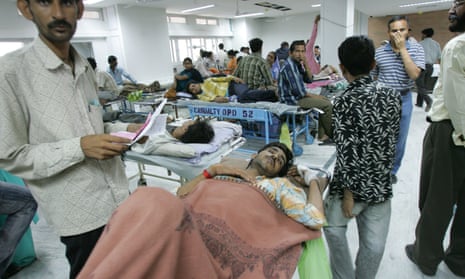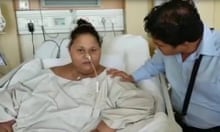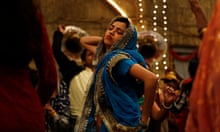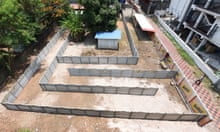Doctors at one of Delhi’s top government hospitals will be given daily martial arts training in response to a sharp rise in reports of violence against medical practitioners in India.
About 1,500 resident doctors at the All India Institute of Medical Sciences (Aiims) in New Delhi will be given taekwondo classes in the hospital’s gym every evening from 15 May.
The president of the resident doctors’ association at the hospital, Dr Vijay Gurjar, said violence against doctors was growing “and the government is not taking necessary steps to decrease it”.
“Prevention is better than the cure, and if the government is not providing adequate security, then you have to take measures to save your life or vital organs,” he said.
According to the Lancet medical journal, a 2016 study carried out in a Delhi hospital found that 40% of resident doctors had been exposed to violence at work in the previous 12 months.
The Indian Medical Association (IMA) says 75% of doctors will face physical or verbal violence during their career. Attacks on nurses and other hospital staff are also thought to be endemic but less frequently reported.
Doctors say there are many reasons for the violence, including massive overcrowding in the public health system, which has contributed to a weakening of the bonds between physicians, the people they treat, and their families.
Corruption and overcharging also mar many Indians’ encounters with the health system.
“India has a large proportion of population that is disenfranchised from health care,” Vivekanand Jha, the executive director of the Delhi-based George Institute for Global Health, told the Lancet.
“Any encounter with the medical system results in catastrophic expenditure for most people. It should not be hard to understand why people begrudge this and hold the medical community responsible.”
Doctors at Aiims worked in helmets last month in solidarity with their colleagues in Mumbai, thousands of whom went on strike in the city after three attacks on doctors in as many days.
According to witnesses, in one incident about 15 people attacked the junior doctor Rohith Kumar after the death of a woman he was treating, who was suffering from chronic kidney failure.
The IMA is also running education programmes to encourage doctors to spend more time with their patients.
It is lobbying for a national criminal law dealing specifically with attacks on doctors and other health professionals.







